Search
Did you mean: Trireme?
Search Results
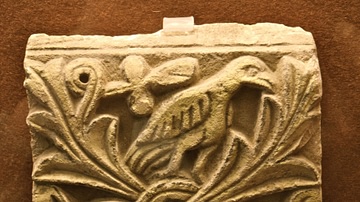
Image
Roman Bird Frieze
This limestone frieze was likely made somewhere in the Eastern Roman Empire in the 5th century CE. It depicts a hungry bird pecking a vine. (Musée du Cinquantenaire, Brussels)

Image
Battle Frieze from Ancient Black Sea Region
This is a fragment of a frieze depicting a battle scene. It might perhaps depict a battle scene between ancient Greek warriors and the legendary Amazons. It comes from present-day Yubileynoye, which is located on Russia's Taman peninsula...

Video
Phidias(?), Parthenon Frieze, c. 438-32 B.C.E.
More free lessons at: http://www.khanacademy.org/video?v=KzZF1lP4Rbk
Phidias(?), Parthenon Frieze, c. 438-32 B.C.E., pentelic marble
(420 linear feet of the 525 that complete the frieze are in the British Museum)
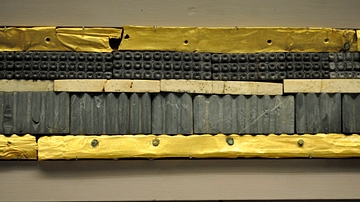
Image
Altar Frieze from Tell Brak
This is from the Eye Temple at Tell Brak. The gold and stone elements were fastened to wood. The design appears to reflect a temple facade; the small circles imitate cone mosaic, and the vertical fluting represents half-columns or niches...
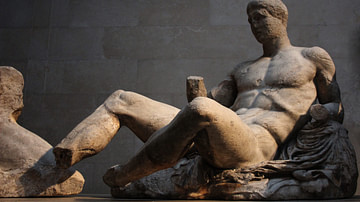
Article
The Parthenon Sculptures
The extraordinary quality and quantity of the marble sculpture which adorned the 5th century BCE Parthenon in Athens made it the most richly decorated of all Greek temples. The sculpture, now mostly separated into the Parthenon Marbles (Elgin...
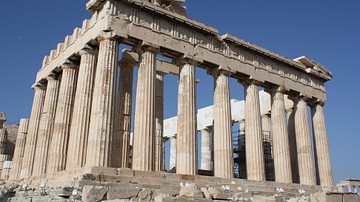
Definition
Parthenon
The magnificent temple on the Acropolis of Athens, known as the Parthenon, was built between 447 and 432 BCE in the Age of Pericles, and it was dedicated to the city's patron deity Athena Parthenos. The temple was constructed to house the...
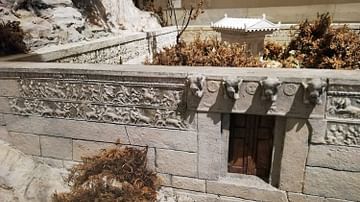
Article
The Heroon of Trysa: A Lycian Tomb Reappears
The Heroon of Trysa was the tomb of a powerful Lycian dynast surrounded by a precinct wall covered with remarkable mythological friezes. It was discovered in 1841 CE when a Polish-Prussian school teacher and classical philologist, Julius...
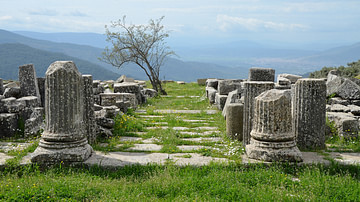
Article
Top 10 Archaeological Sites in Caria, Turkey
Located at the crossroads of many ancient civilizations, Turkey is a haven for archaeology lovers. Over the centuries, a succession of empires and kingdoms – Hittite, Lydian, Persian, Greek, Roman, Byzantine and, finally, Ottoman – ruled...
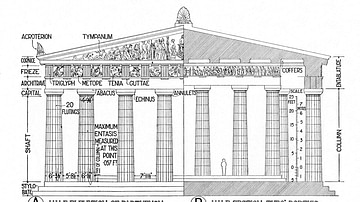
Article
A Visual Glossary of Classical Architecture
Abacus - a large slab placed above the column capital to support the architrave or an arch placed above it. Akroterion - a decorative piece added to the roof of a temple at the apex and corners, usually made of clay or bronze and often in...

Article
The Arch of Constantine, Rome
The Arch of Constantine I, erected in c. 315 CE, stands in Rome and commemorates Roman Emperor Constantine's victory over the Roman tyrant Maxentius on 28th October 312 CE at the battle of Milvian Bridge in Rome. It is the largest surviving...